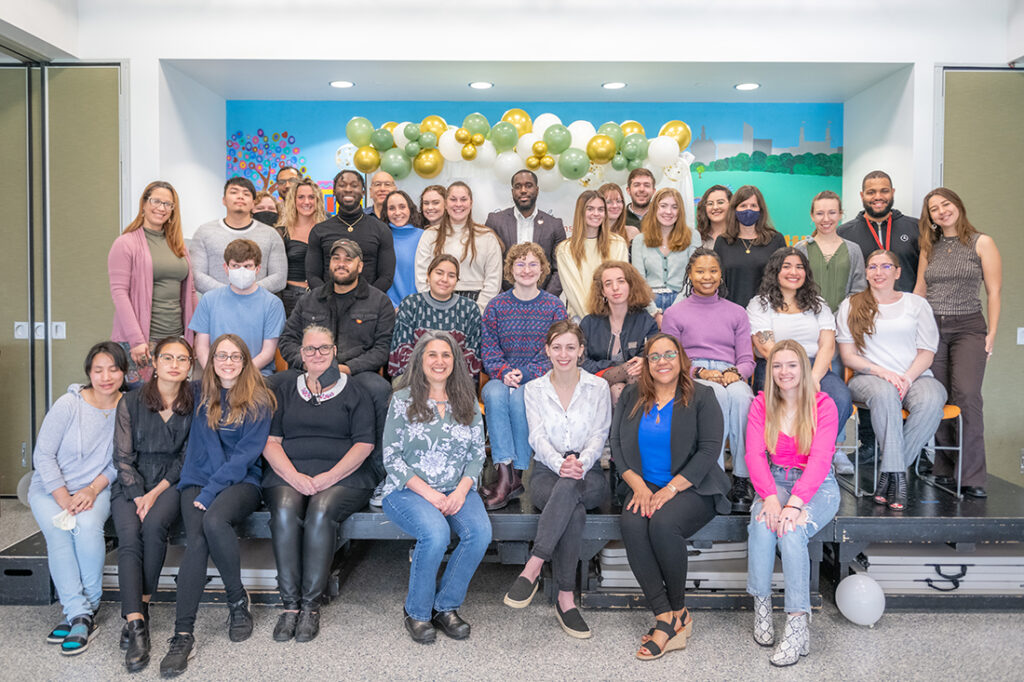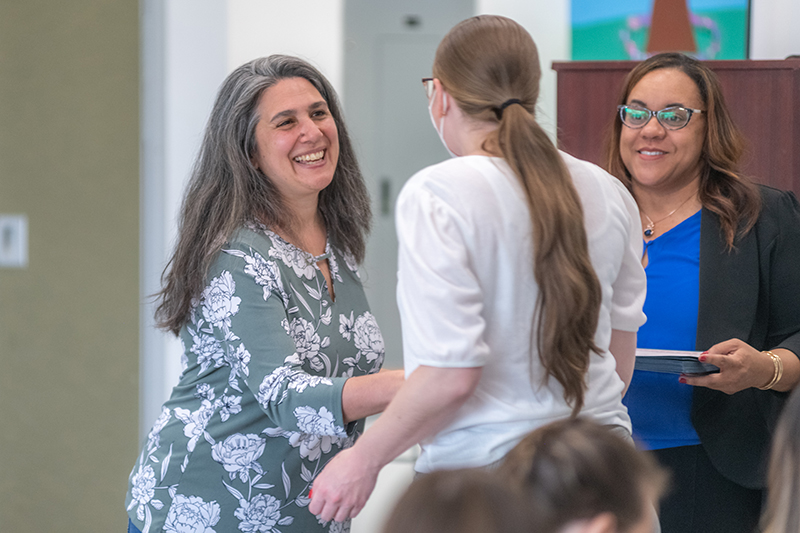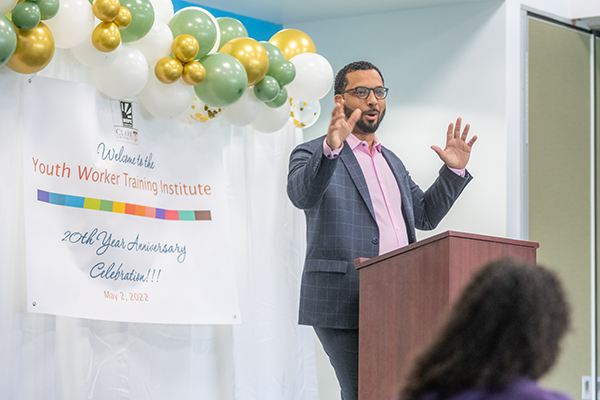Institute celebrates 20 years of training youth workers

In 2000, Worcester’s HOPE Coalition identified a troubling trend: Attendance in city teen programs was dwindling. The Coalition, a partnership of local organizations that gives local youth “healthy options for prevention and education,” learned that area teens felt most programming was geared toward younger children. Further investigation revealed that professional youth workers weren’t necessarily trained to work with teens.
In response, the Youth Worker Training Institute was born.
The 15-week program is a collaboration between the HOPE Coalition, Clark University, and the Collaborative for Youth and Community Justice. Participants are professional youth workers and Clark students who are enrolled in Fundamentals of Youth Work, a required course for the Certificate in Youth Work Practice. Once a week, the participants meet at the Boys and Girls Club — or, occasionally, at fieldwork sites — to develop their youth-work skills.

The program is taught by Institute coordinator Jennifer Safford, who is also youth and gang violence special projects coordinator at Clark. It consists of sessions that are co-facilitated by youth development professionals from area organizations, including the city of Worcester, Boys and Girls Club, Planned Parenthood League of Central MA, EMK Community Health Services, and Worcester ACTS. Each session includes networking time, and Clark students are matched with their program classmates for fieldwork.
“Participants include all levels of youth workers,” says Safford. “Often, youth workers are just thrown into the job … organizations don’t always have the capacity to provide the training their employees need.” She points to a high level of turnover among youth workers due to traditionally low levels of training and preparation, inadequate compensation, and few opportunities for advancement or professional networking.
Some agencies, acknowledging the current shortage of mental health professionals, turn to the Institute to train staff to provide social and emotional support for area youths, says Professor Laurie Ross ’91, M.A. ’95, who has led the HOPE Coalition since it was created in 2000 and is director of the Certificate in Youth Work Practice program.
At least 500 professional youth workers and more than 300 Clark students have gone through the YWTI program since its inception. In May, the Institute’s 20th graduating class comprised 46 students and youth workers — its largest class ever.
Joseph Corazzini, vice president for government and community affairs at Clark and a former youth worker himself, delivered the keynote address at the May 2 YWTI graduation ceremony.

“The Youth Worker Training Institute has been critical to advancing the professionalism of youth work in the city of Worcester over the past 20 years,” he said. “Youth workers play a critical role in helping to fill a significant vacuum for many young people. The Institute’s model brings together veteran youth workers from across the city to partner with Clark faculty to prepare the next generation of youth workers.”
Ross notes that having Clark as a partner strengthens the program stronger and makes it more attractive to organizations who want their employees to take part.
This year’s YWTI graduates included youth workers from a range of Worcester organizations, including the YWCA of Central Massachusetts, Ascentria Care Alliance, Southeast Asian Coalition, Stand Up for Kids, Bruce Wells Upward Bound/YOU Inc., and African Community Education, among others.
The core of youth work, Ross says, is building trusting relationships and creating safe environments — while figuring out what “safe” actually means to a young person.
“Youths often will divulge [sensitive] information, and the youth worker has to figure out what to do with it while protecting the relationship,” she explains.
This year’s high enrollment in the Youth Worker Training Institute program might be attributed to the fact that last year’s program was virtual and offered to Clark students only, she adds. “People had been waiting for it to come back in person,” Safford says. “Our young people struggled so much in the pandemic, and youth workers saw firsthand what was going on. They weren’t necessarily acknowledged as being on the front lines, but they were.”
Youth workers know the value of the work they’re doing, Ross says, even if they are not always recognized for it. “And that’s one of the reasons we hold the graduation every year — to celebrate these workers.”


